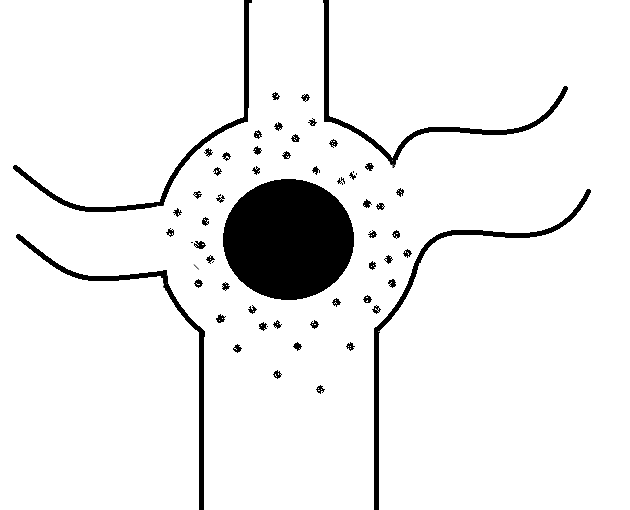|
I recently asked a group of NFP users (various methods) what they think high schoolers should know about NFP in preparation for a talk I'm planning. I really appreciate the honest and candid responses these men and women provided. One of the common responses that instructors may sugar-coat or glaze over is that NFP is hard. In training, instructors focus on encouraging couples in their NFP journey by heralding the benefits. In this blog, I want to encourage couples by acknowledging that they are not alone, but this journey is so worth it! NFP isn't convenientFertility has little consideration for planning around the events in your life. Natural Family Planning is hard when you're fertile on your honeymoon and trying to avoid pregnancy. But you know what? We had a great honeymoon anyway! Getting to spend 24 hours a day together and adventuring together was wonderfully intimate! We were able to consummate our marriage at the end of our honeymoon. To be honest, it wasn't all that memorable. The adventures we went on, the other romantic moments and just figuring out how "us" works through decision-making and difficulties (like almost missing our flight to our honeymoon because I was held up by security) were the most memorable moments of our honeymoon. Don't get me wrong, sexual unity is an important aspect of married life; however, I believe, there's a lot of truth in the old adage "it gets better with age." Knowing your spouse, how to best love each other and being comfortable experimenting makes the marital embrace much more enjoyable as life goes on. Trying to Avoid or Achieve PregnancyMost couples find Natural Family Planning the hardest during fertile times when trying to avoid pregnancy. Some couples find each other so attractive that they struggle sharing a bed during fertile periods. Other couples can comfortably cuddle naked, knowing they are resting in the arms of their beloved and that all they will do is rest. Because the intimacy line differs for each couple, Instructors can only encourage couples to communicate openly and frequently about the difference between affirming touch (actions that say "I love you") and arousing touch (actions that say "I want to make love with you"). The words and actions that communicate love for one spouse may have a different meaning for the other spouse. Talking through their differences helps couples to maintain intimacy while not "being intimate." Those who previously used artificial contraception often experience the most difficulties in stopping to think about fertility before deciding if the moment is right to "renew their marriage vows" (CCC 2360). If this is you, be encouraged that the more you communicate and support each other, the better it will be! Natural Family Planning is a lifestyle and all lifestyle changes come with moments of triumph and moments of disappointment (think of starting a new diet or exercise program). To help couples adjust to their lifestyle change, Creighton instructors meet with their clients 8 times in the first year and offer opportunities for couples to talk through their successes and struggles. One of my clients mentioned that she loves coming to sessions because she and her husband leave each session with so much to talk about. Other couples experience difficulties achieving pregnancy. Frustration occurs when the fertile time comes while family is staying for the week and they are sleeping on an air mattress in the living room. For others, fear and anxiety mix with hope and excitement each fertile period as they anticipate another positive pregnancy test only to experience the disappointment of another month gone by or the immense pain of another miscarriage. The physical and emotional turmoil leads some couples to put a hold on trying to achieve, which is perfectly acceptable. Only the couple can choose to avoid or achieve pregnancy. Instructors teach couples to identify their fertility so they can confidently use the system to avoid or acheive and have the freedom to change their minds at any point of time. Challenges Checking FertilityWomen have so much going on in their lives and in their bodies! Busy women find taking the time to check their fertility the hardest. Even though 90% of women can check their signs in 30 seconds or less, checking fertility is a habit and new habits take time to develop. Creighton Instructors help women identify their challenging circumstances and work with women to form a plan to help them master checking their fertility. When women start charting with Creighton, we give them the basic method instructions. Most women will need special method instructions at some point during their reproductive life. When your fertility lasts 11 consecutive days or more, contact your instructor if you don't have an appointment scheduled in the next 2 weeks! The average fertility lasts only 6 days and by 11 days we can give extra protocol to help couples distinguish fertile days from infertile days. Many women feel overwhelmed when given the instructions, but find that once put into practice for a month or two they can clearly and confidently identify their fertility. This is true for women who have regular cycles, irregular cycles and are breastfeeding. InsecuritiesSome women lack confidence in reading their body's signs. In the beginning, they are so afraid of messing up that they count everything as fertile, second-guess themselves and unnecessarily avoid intercourse. We are here to help! By 3 months, most women confidently and correctly identify their fertility and by 6 months nearly all women have no problems identifying their fertile time. Of the 12% of people who discontinue using Creighton in the first 18 months, 55.4% discontinue by 3 months and 77.7% discontinue by 6 months. After 6 months, the discontinuation rate is only 2.7 (Hilgers, Creighton Model FertilityCare System-Basic Teaching Skills). The actual use effectiveness for avoiding pregnancy is 96.8%. This accounts for all user errors in both observation and charting. For those who use the method perfectly (100% observations and correct charting), Creighton is 99.5% effective. These effectiveness studies of 1,879 couples include breastfeeding women and women on special instructions. If you worry about messing up, rest assured that your chances of becoming pregnant with Creighton are less than the pill, condoms and less than or equal to any other natural method. See last week's post Not Your Grandma's Family Planning if you want to see how Creighton compares. When NFP is "ripping apart your marriage"Natural Family Planning requires trust, communication and selfless love. NFP can bring a lack of these qualities to the surface of a marriage. Working through these difficulties brings couples closer together, but the process of identifying and working to remedy marital problems is HARD WORK!
The path is too narrow for them to continue together. They can either go around the obstacle in different directions or one before the other in the same direction. It doesn't matter as long as they continue toward the same path and not take one of the side paths. It will be very difficult and the side paths will be tempting, but when the couple meets up again on the other side they will walk closer because they have been through this difficult experience together. Final NotesIn a couple of weeks, I want to do a post on the benefits of Natural Family Planning. Although benefits abound, I first wanted to be real with you that NFP isn't all sunshine and roses. If you struggle with NFP and just want to know you're not alone, check out The Sinner's Guide to NFP by Simcha Fisher. If you want companionship and encouragement, I highly recommend Holy Sex by Dr. Gregory Popcak and the blog Mamma Needs Coffee by Jenny Uebbing.
1 Comment
|
Are you looking for a specific blog? Find it here!
AuthorStephanie started her Creighton Model journey in early 2014 and entered the program to instruct others in 2017. She enjoys equally adventuring in the great outdoors with family and friends and reading a good book with a cup of tea. For more details, visit her About Me page. Archives
March 2021
Categories
All
|


 RSS Feed
RSS Feed
